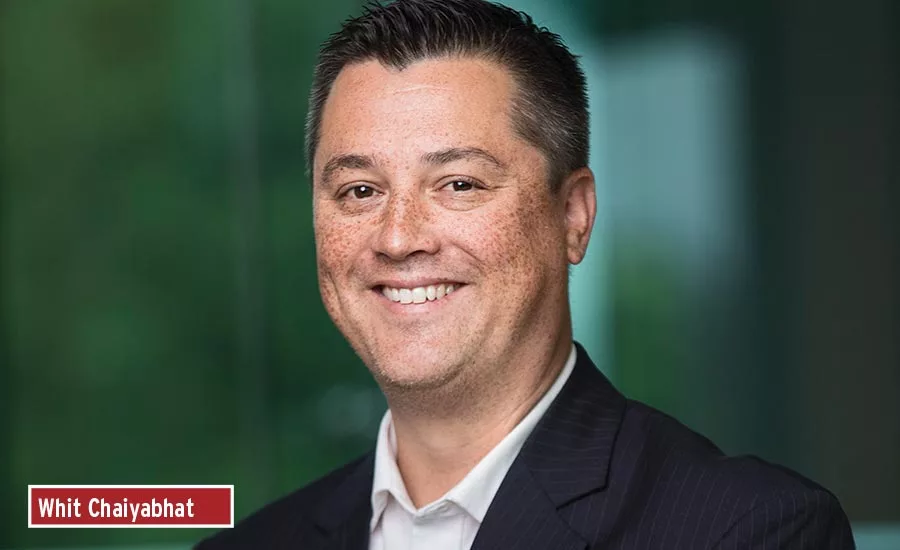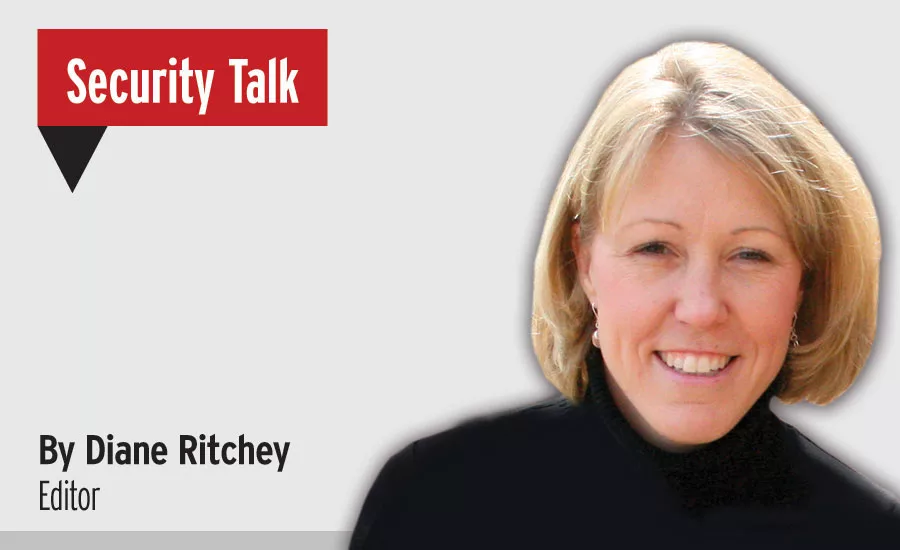Changing Cultures, Changing Security at FM Global
National crises like 9/11 and the Virginia Tech shootings compelled Whit Chaiyabhat into a career of public service and risk management advocacy.


One of the most rewarding parts of my job, as Editor of Security magazine, is the opportunity to speak with our readers. I recently had the pleasure to speak with Whit Chaiyabhat, staff vice president, crisis manager, for FM Global, one of the world’s largest commercial and industrial property insurers. He has had a successful 20-year career in various roles within the global security industry. In each position, he’s had to adapt his approach to securing the enterprise, based on the risk culture, the environment and emerging global security threats.
Chaiyabhat began his career in a consulting role at Booz Allen Hamilton, a position he says allowed him to observe and impact how multiple federal and commercial enterprises operate, which ultimately has helped form his future approaches to navigating risk cultures and appetites. “During my time there, 9/11 happened, and I wanted to be part of the country’s national-level response. I was fortunate to have an opportunity to join the FBI as a Security Specialist (Protective Intelligence Program Mgr.) & Emergency Preparedness Coordinator. That FBI role was a ‘sink or swim’ career moment for me because it forced me to broaden my professional areas of expertise and capabilities quickly. My years serving the FBI and our country remain some of my most rewarding professional experiences in my career. I maintain a profound respect and admiration for our national security public servants within the FBI and Intelligence Community.”
While he was proud to serve and enjoyed his FBI role, another significant U.S. security event took place and Chaiyabhat felt the calling to be part of that response, as well: the shootings at Virginia Tech University. “Georgetown University was looking for someone to lead their newly formed global Emergency Management & Business Continuity programs. I also helped initiate the University’s renewed and comprehensive strategies for behavioral threat assessment and management of potentially threatening individuals and situations. Following the Virginia Tech shootings, there was a watershed moment for security – crisis management and threat assessment in higher education, and I was compelled to join that effort. I was also involved in the University’s cross-function team response to the Arab Spring crisis.”
Chaiyabhat also had a role as Director of Risk Management & Security at the Washington National Cathedral, where he worked with government and private executive protection teams and high-level VIP guests in preparation for and during major special events. He also led a complete overhaul of the Cathedral’s SOC, campus-wide emergency mass notification systems and Cathedral Police Department organizational enhancements. “My time there helped to shape my thinking, that my role as leader in an open ‘soft target’ environment is all about striking a sound balance between caring for people by applying strategies that fit the culture, while also providing effective security protective measures to detect, deter and respond to threats.”
Chaiyabhat then entered a new industry with a vastly different security posture: as global security manager with Raytheon Missile Systems, to assist in the protection of the world’s largest missile maker and its worldwide locations for the design, R&D and manufacturing of products critical to U.S. and allied country military defense. There, he also led the business justification and implementation of the first-ever data science and analysis team supporting all disciplines of Raytheon Missile Systems’ global security organization.
At the FBI, National Cathedral and Raytheon Missile Systems, Chaiyabhat managed insider and external threat cases that could have had real implications to life safety and the people who were being targeted. “On a personal level, working those cases was rewarding because there was a direct correlation to a person’s individual safety. It’s rewarding to navigate organizational strategic and operational risks, but for me, the threat cases that I have worked required partnerships to de-escalate the situation, and to allow people to go home safely at the end of the work day – which I find to be the most rewarding aspect of our security profession.”
Now at FM Global, he is leading an enterprise security and crisis management program, and he has C-suite level support to do so. “FM Global takes an engineering-based approach to insurance, and we advise our clients to help their businesses become more resilient to property-related hazards that can disrupt their operations,” he explains. “Risk management is in our company’s DNA, and our leaders understand and embody what our team is trying to do in managing our own organizational risks.”
Overall, he says, “No matter where I have been in my career, I have always tried to turn my passion for continuous learning into practical applications and enhancements for organizational risk culture and security strategies. I could have stayed in the same role for 40 years and done security the same way within the same environment. I believe that I am a better security professional and risk advisor as a direct result of having done consulting and working in several organizations, and thus adapting my approach to security and risk management to fit varying risk appetites.”
Looking for a reprint of this article?
From high-res PDFs to custom plaques, order your copy today!




